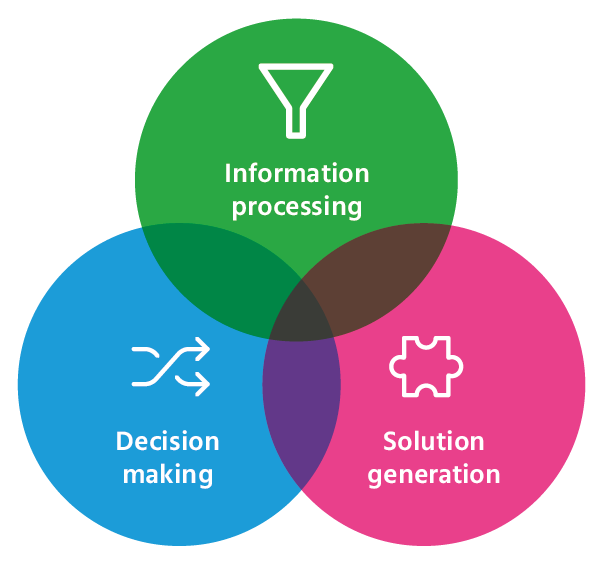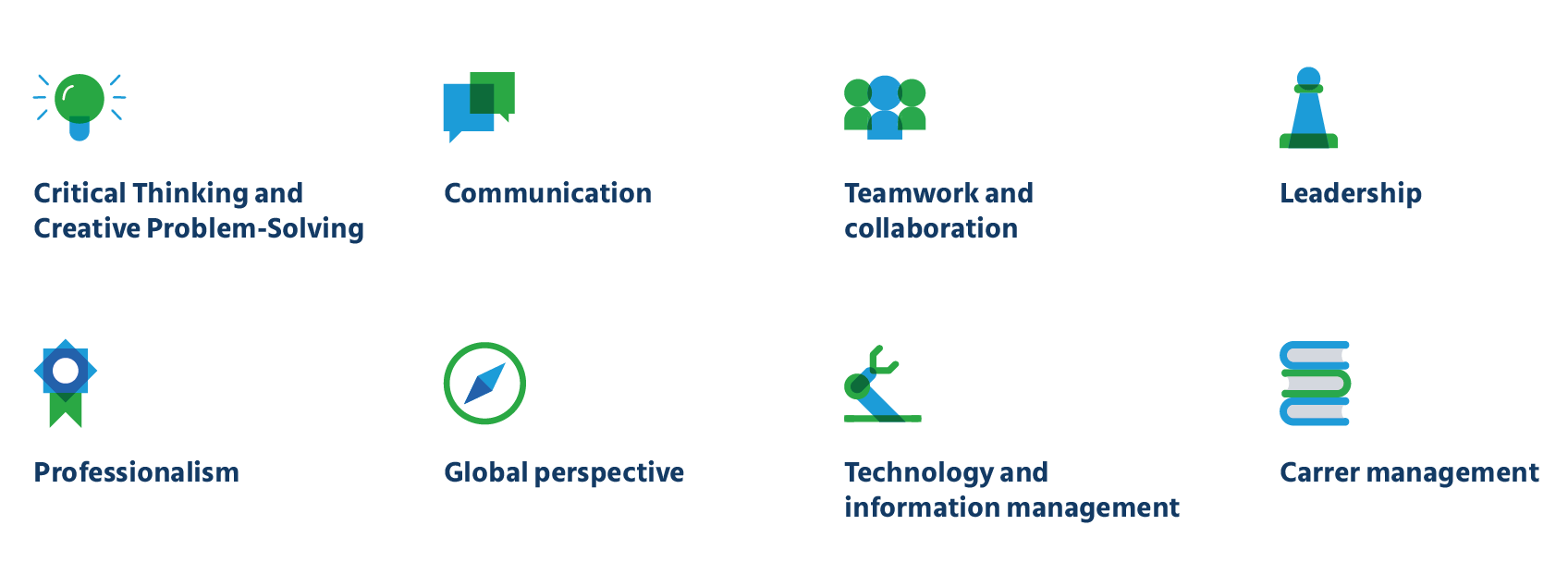Companies can assess candidates’ aptitudes in several ways. There are endless possibilities – from a conventional online aptitude test for recruitment to career-specific test combinations. Besides, your choice of the test type depends on factors such as:

This chapter simplifies your choices by categorizing them into three major sections:
1. The most popular types of aptitude tests used in hiring
Familiarity with these fundamental aptitude assessments will help you create your test structure with sections focused on the aptitudes you want to measure.
2. A combination of domain-specific aptitude tests and personality assessments
When you want to identify best-fit candidates for a profession, analyzing their personality along with their domain-specific aptitude offers a more holistic approach.
3. Tests to measure aptitude at different professional levels
This section introduces you to Mercer | Mettl’s framework of aptitude levels and competency assessments that you can choose when hiring for specific job roles.
The Most Popular Types of Aptitude Tests used in Hiring
An aptitude test intends to measure the core brain functions, such as attention, speed, memory and visualization, providing a holistic assessment of fluid and crystallized intelligence. Hence, the most popular aptitude tests used for hiring feature a wide range of question types:
Creating an Ideal Assessment by Combining Domain-Specific Aptitude Tests and Personality Analysis
Companies can combine and create a custom battery of tests for testing domain-specific aptitudes and personality traits. For example, an online aptitude test for engineers, combined with a personality assessment, can serve as the perfect tool to identify qualified engineers with agreeable personality traits.
Using these tests cumulatively allows you to strengthen your hiring decisions further and identify the top talent from the available pool.
Examples of domain-specific aptitude tests include:
And so on.
Our Definitive Guide to Personality Assessment Tests offers detailed insights that will help you curate custom tests in a more informed way.
Mercer | Mettl’s Job Categorization Framework
Different types of aptitude assessments can help measure the core competencies essential for efficiently completing tasks at the workplace. The best career aptitude test is one that focuses on the nature of the job and industry. However, before exploring it, let’s check the three core competencies that form the basis for aptitude tests for hiring.

1. Information Processing: It involves the ability to use available information using numerical and analytical reasoning.
2. Solution Generation: It involves finding creative solutions to the existing problems using abstract reasoning.
3. Decision-Making: It involves solving problems using rational and logical thinking. It also involves the ability to devise ‘out-of-the-box’ solutions.
Each of these core competencies also has two main factors that determine the type of test you should choose:
1. Frequency: It means how often an individual uses these competencies in a day-to-day job.
2. Difficulty Level: It refers to the tasks’ difficulty level related to these competencies.
Depending on the factors above, a particular competency defines the individual’s overall performance. And Mercer | Mettl’s job categorization framework offers a transparent picture to help you choose the right aptitude assessment for different job roles.
Determining Job-Fitment with the Right Aptitude Test Level
As stated earlier, it is crucial to choose tests that assess abilities relevant to a specific job role because employees across different industries have varying levels of job match. Simply put, specific career profiles require specific aptitude levels. And there can be several curated assessments to assess each level.
Test Level 1
It can be undertaken to measure aptitude for performing routine tasks that don’t involve decision-making or analytics.
Competencies measured: Abstract reasoning, numerical reasoning, verbal ability, and attention to detail.
Best suited for administrative and clerical roles.
Test Level 2
It can be given to gauge learning and analytical abilities.
Competencies measured: Numerical reasoning, verbal ability, decision-making, attention to detail.
Best suited for executive roles.
Test Level 3
It can be offered to analyze problem-solving and decision-making skills.
Competencies measured: Abstract reasoning, numerical reasoning, verbal ability, critical reasoning, decision-making and problem-solving.
Best suited for functional and supervisory roles.
Test Level 4
This level can help measure advanced problem-solving and decision-making skills.
Competencies measured: Abstract reasoning, creativity, numerical reasoning, verbal ability, critical reasoning, decision-making, problem-solving.
Best suited for senior managerial and business head roles.
Test Level 5
This can be offered to test leadership potential, intelligence, learning agility and data interpretation skills.
Competencies measured: Abstract reasoning, creativity, numerical reasoning, verbal ability, critical reasoning, decision-making, problem-solving.
Best suited for leadership and strategic roles.
The five aptitude test levels listed above correspond to the general professional hierarchy in an organization. Hence, they are an ideal set of assessments for lateral hiring. Experts recommend using a battery of campus hiring aptitude tests when recruiting graduates and assessing entry-level candidates that primarily measure:
How Aptitude Tests Are Administered for Recruitment
Modern aptitude tests for hiring are easier to administer than before, with almost every aspect of the professional and academic world taking the digital route. Instead of undergoing the hassles of hosting these tests at a brick-and-mortar venue, employers can easily opt for their virtual version.
- An employer can set up an aptitude exam for recruitment based on relevant question formats on a cloud-based, secure platform.
- The said online platforms can be secured with a range of anti-cheating features, automated grading and remote proctoring to maintain the test’s integrity and results.
- Once satisfied with any additionally needed features, employers can finalize the test and share the test link with the applicants.
Interpreting the Test Results
Generally, no minimum score is required to clear an aptitude test. It depends on the number of applicants taking the test concurrently and the cutoff you set. Usually, candidates who manage to score in the top 5 percent tend to get a higher preference, while those scoring in the top 20 percent can also be considered.
Below are three key points to remember if you want to understand aptitude scoring patterns and their interpretation:
- The number of right answers given by a candidate is compared to a benchmark and then represented as a percentile.
- You can compare the scores to identify those with the best reasoning skills or specific abilities you seek.
- Negative marking can be included for incorrect answers if you wish.
With advanced assessments, their difficulty level and types of questions may affect the overall score. Hence, it is best to set a benchmark for the comparison of all test results.









 Behavioral Competencies
Behavioral Competencies Cognitive Competencies
Cognitive Competencies Coding Competencies
Coding Competencies Domain Competencies
Domain Competencies











































Would you like to comment?